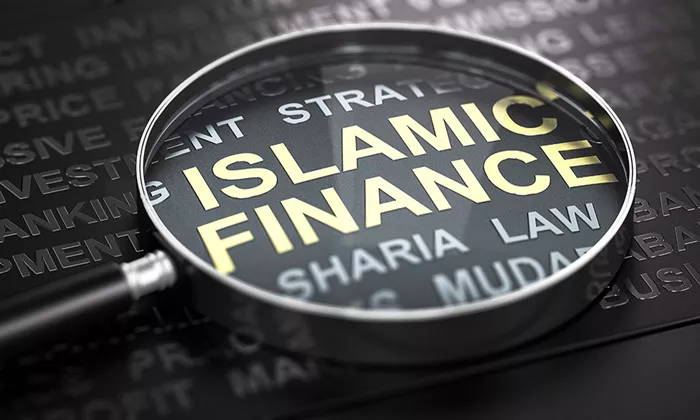The Growing Influence of Islamic Finance Beyond Traditional Markets
Islamic finance, traditionally centered in the Gulf Cooperation Council (GCC) and Southeast Asia, is increasingly expanding beyond its regional strongholds. Rooted in Sharia-compliant principles that prohibit interest (riba), excessive uncertainty (gharar), and investments in harmful industries, the sector is seeing rapid global growth. As ethical and sustainable investment trends gain traction, Islamic finance is tapping into non-Muslim-majority countries. Projections suggest that global Islamic finance assets will reach $6.7 trillion by 2027, as technology, regulatory support, and demand for ethical finance drive its international reach.
A Booming Market with Significant Growth
Islamic finance grew by over 10.6% in 2024, with global assets surpassing $3.6 trillion, according to S&P Global Ratings. Banking assets make up 60% of these assets, with sukuk (Islamic bonds) playing a key role in this expansion. The GCC region was responsible for 81% of the growth, with Saudi Arabia contributing two-thirds of that total.
Umer Suleman, chief risk officer at Wahed, a UK-based Islamic finance firm, noted that the growing Muslim population, especially younger, tech-savvy individuals, is fueling demand for authentic, purpose-driven financial products. He highlighted the opportunity for financial stakeholders to lead in creating truly Sharia-compliant offerings that are ethical and inclusive for all society segments.
The sukuk market, a major driver in Islamic finance, is expected to see issuances between $190 billion and $200 billion in 2025, slightly down from $193.4 billion in 2024. Sustainable sukuk, which align with environmental, social, and governance (ESG) criteria, is forecast to grow to $10 billion to $12 billion in 2025.
Non-Muslim Countries Embrace Islamic Finance
Countries outside traditional Islamic finance markets are increasingly adopting Sharia-compliant financial products. The UK, home to over 4 million Muslims, has become a central hub for Islamic finance in Europe. With total Islamic finance assets valued at $10 billion at the end of 2023, the UK’s regulatory framework and ties with GCC markets have attracted significant investments. The issuance of sovereign sukuk by the UK government in 2021 marked a significant milestone for non-Muslim-majority countries.
South Africa and Australia have also embraced Islamic finance. In 2023, South Africa re-entered the sukuk market after a nine-year break, issuing a $1.1 billion sovereign sukuk. Australia’s National Australia Bank introduced a Sharia-compliant loan aimed at its Muslim community in 2021. These efforts reflect the growing acceptance of Islamic finance in diverse economies.
Technology and Blockchain Accelerate Growth
The expansion of Islamic finance is being driven by fintech and blockchain technology. Fintech firms such as Wahed and IMAN are making Sharia-compliant products more accessible worldwide. Wahed, with 400,000 global users, operates in markets like the US, UK, and UAE. IMAN, available in over 60 countries, provides a mobile platform offering investment and buy-now-pay-later services in accordance with Islamic principles.
Blockchain technology also plays a crucial role in enhancing transparency and reducing risk (gharar) in transactions. In 2018, the UAE’s Al Hilal Bank used distributed ledger technology to facilitate the sale of sukuk. In 2023, Islamic Coin, a Sharia-compliant cryptocurrency, raised $200 million, further demonstrating the potential of blockchain in the Islamic finance industry.
Overcoming Key Challenges
Despite its rapid growth, Islamic finance faces several challenges. Standardization remains a significant hurdle, as varying interpretations of Sharia law create inconsistencies across jurisdictions. While organizations like the Accounting and Auditing Organization for Islamic Financial Institutions (AAOIFI) have made progress, a global framework for Islamic finance is still lacking.
Another challenge is the shortage of professionals skilled in both Sharia law and modern finance. Malaysia has addressed this issue by offering specialized programs at institutions like the International Centre for Education in Islamic Finance, but other regions are lagging.
Liquidity management is also a challenge. Sharia law prohibits the use of conventional financial tools like interbank lending, forcing Islamic financial institutions to rely on less efficient alternatives. Efforts are underway to develop regulatory frameworks and liquidity tools to address these issues, but progress remains slow.
According to Suleman, fostering collaboration between regulators and institutions is crucial for global alignment. Bridging the talent gap through practical programs for professionals transitioning into Islamic finance will also be key to the industry’s continued growth.
Looking Ahead
The global expansion of Islamic finance is not without risks, particularly in geopolitically unstable regions like the Middle East. However, the asset-based nature of Islamic finance, with instruments like sukuk offering stability, helps protect it from interest rate fluctuations.
For continued growth, regulatory support, technological adoption, and public awareness will be essential. Many non-Muslim-majority countries, including the UK, France, and Luxembourg, are providing tax-neutral frameworks for sukuk. Meanwhile, educational campaigns by countries like Malaysia and the UAE are helping to demystify Islamic finance for global audiences, ensuring its future success.
Related Topics:
What’s New in the 2025 Spring Memorandum for International Businesses?
Thailand’s Central Bank Pushes for Inclusive Digital Finance in ASEAN

